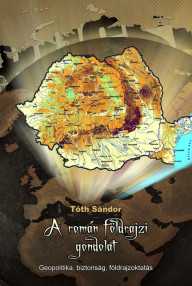Tóth Sándor

A román földrajzi gondolat
2013. március 1. 14:23
Szemügyre véve a románságot néhány évszázad leforgása alatt érintő politikai területváltozások számát és mértékét, könnyen belátható, hogy a geopolitika méltán vált a román politikai és közgondolkodás egyik legfontosabb alapkövévé. A háború ok-okozati összefüggéseit kereső tudományok közül a geográfia azzal tűnt ki, hogy képes volt az oknyomozó szemlélet érvényesítésére. Ez eredményezte az emberföldrajz és a politikai földrajz kialakulását, és végső soron a geopolitika megszületését. Az új „tudomány”, bár tudományos voltáról mindmáig nincs egyetértés, szinte átsöpört Európán, beleértve Magyarországot és Romániát. A szocialista időszakban a geopolitikáról még csak beszélni sem lehetett, kivéve, ha az ellenlábas imperialista világ „tudománytalan” nézeteinek elítéléséről volt szó. A román geopolitikai gondolkodás mélyebb ismerete még integrációs világunkban is kívánatos lenne, különösen akkor, ha egyik szomszédunkról van szó, amely a legnagyobb számú magyar nemzetiségű lakosságnak ad otthont. Hiánypótló a román geopolitikai iskola történetével foglalkozó feldolgozás, amelynek alapvető módszere és eszköze a forrásfeltárás és közlés.

Romanian Geographical Thought
2013. március 1. 14:23
In view of the number and extent of territorial changes affecting the Romanian people for political reasons in the space of just a few centuries, it is easy to see that geopolitics has become one of the most important cornerstones of Romanian political and public thinking with good reason. Geography has gained an important position among other branches of science exploring the causality of war, because it was able to adopt an investigative approach. This resulted in the emergence of human geography and political geography, and the birth of geopolitics after all, although to the present day there is no consensus on whether it is a science or not. The new “science„ almost swept over Europe, including Hungary and Romania. In the Socialist era, geopolitics was a taboo subject, except on those occasions when the “unscholarly” views of the opposing imperialistic world were condemned. Yet, it would be desirable to acquire a more thorough knowledge of the Romanian geopolitical thinking in our world of integration, all the more so because Romania, our neighbour is home to the largest number of ethnic Hungarian population. The fundamental method and tool of this much-needed book dealing with the history of the Romanian geopolitical school is the exploration and publication of the sources.
